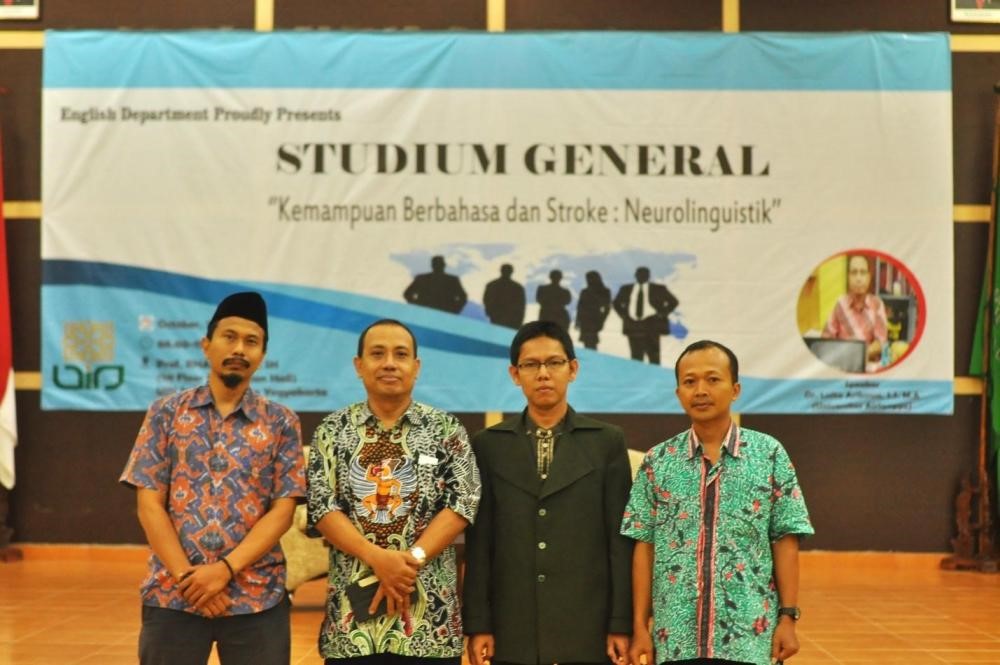Linguistics’ Contribution to Medicine

On Tuesday (2/10/2018), a public lecture was held by Dr. Luita Aribowo, S.S, M.A, a lecturer from Airlangga University, with the theme "Language Ability and Stroke: Neurolinguistics". This lecture took place in Prof. RHA Soenarjo SH building (1st floor of the Convention Hall of State Islamic University of Sunan Kalijaga Yogyakarta).
The event began with the welcoming speech by Dr. Ubaidillah M.Hum as the Head of the English Department and was followed with welcoming speech by Dr. Maharsi M.Hum as the Vice Dean for Academic Affair at Faculty of Adab and Cultural Sciences. Before delivering the material, Mr. Bambang Hariyanto, S.S, M.A as the moderator introduced Dr. Luita Aribowo, S.S, M.A as the speaker of this public lecture.
in 1995, Dr. Luita Aribowo, S.S, M.A obtained a Bachelor's degree in Indonesian Literature from Airlangga University. He also obtained a Master's degree and Doctoral degree in Linguistics from Gadjah Mada University in 2008 and 2016 with scientific research about the language used by stroke victims.
The public lecture was attended by 200 participants consisted of English Department students of chapters 2015-2018 and the academics of Faculty of Adab and Cultural Sciences.
In this public lecture, Dr. Luita Aribowo, S.S, M.A, explained about impaired language skills caused by stroke (brain blood vessel disorders or head injuries that cause brain injuries). The term of language disorder is called Aphasia. This research about Aphasia aimed to develop linguistic theories or to test a particular theory. Dr. Luita Aribowo, S.S, who is also a language therapist at an institution in Surabaya, said that a person's cognitive abilities affect language abilities, both for the stroke victims or children who suffer speech delay. This can be overcome if the nerves in the brain function properly.
The program ended with a question and answer session. All participants were very enthusiast to ask because the material presented was directly related to the language problems that are often found in daily life.
